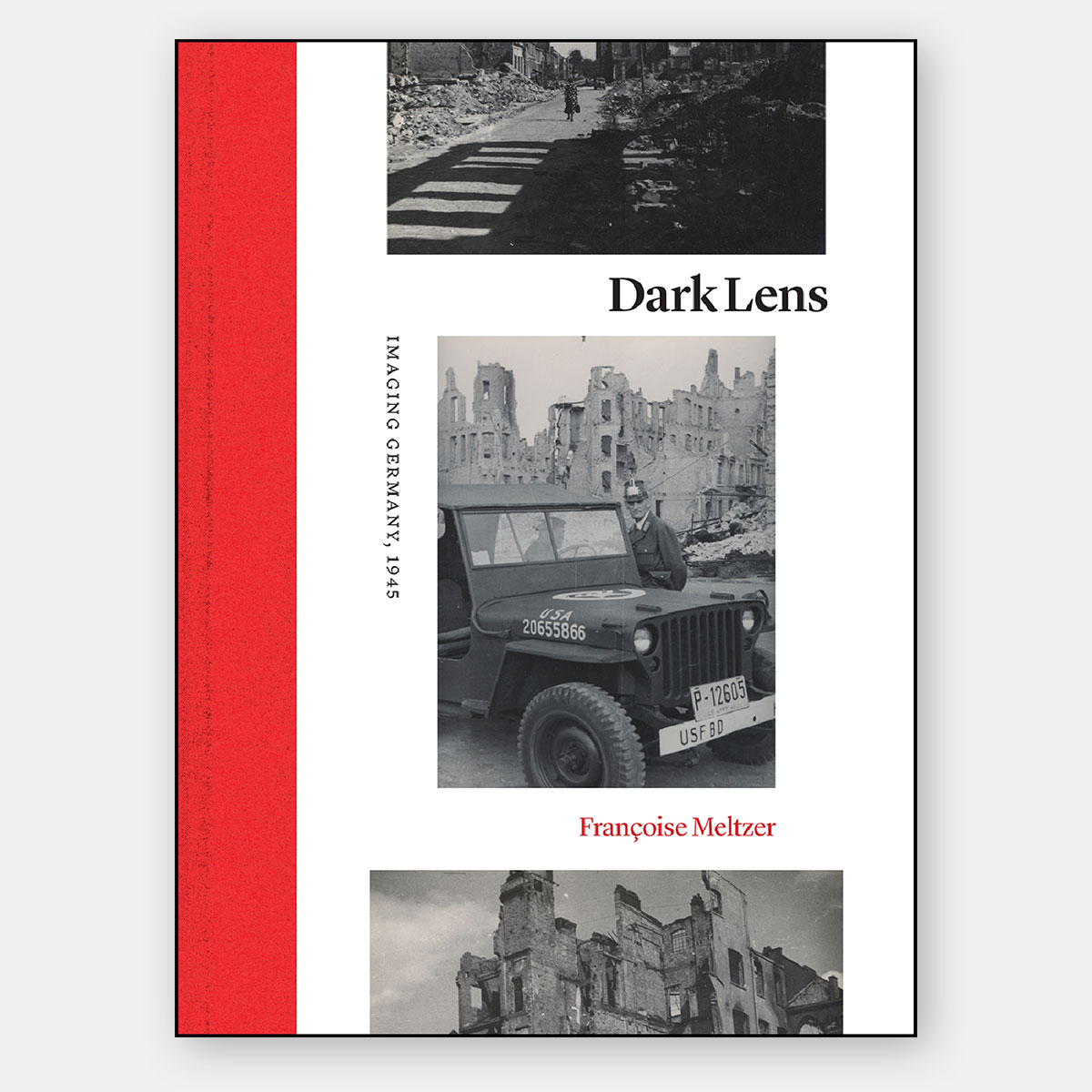Françoise Meltzer: Dark Lens

9.5.2020
Reviewed by Steffen Siegel
Today, on the day, 75 years ago was the first day 'after'––at least in Europe. There are many attempts to describe the atmosphere, and for sure, the most prominent one has been the 'zero hour' (die Stunde Null). In his remarkable memoir Nach 1945. Latenz als Ursprung der Gegenwart from 2012, the German-American scholar Hans Ulrich Gumbrecht introduced a much more convincing metaphor: 'latency.' (An English translation is available from Stanford UP as After 1945. Latency as Origin of the Present). I am not an avid fan of Gumbrecht's writings, but this book, in particular, is brilliant.
I said 'more convincing'––but, in fact, how could I possibly know? It is the question Françoise Meltzer raises in her book Dark Lens. Imagining Germany, 1945. It just came out with The University of Chicago Press. Meltzer, who has been teaching Critical theory in Chicago, takes a very personal point of departure: Her French mother Jeanne Dumilieu––during the war a member of the Résistance in Paris and, after the war, living as an American diplomat's somewhat bored wife in Bonn––took photographs of the terribly destroyed Germany. For the very first time, Meltzer (who was born in 1947) is presenting an archive of cityscapes that trigger mixed emotions: mourning, compassion, feelings of well-deserved retribution, maybe even schadenfreude.
At least this is what Meltzer reckons as a possible spectrum of reactions, taking place in 1945 as well as nowadays. She is touching upon the intricate question of how to behold (and judge) German civilians in their bomb-gutted cities: Were they criminals or victims? Can we even generalize? Is there any space for empathy? It goes without saying: there are no simple answers. Meltzer is tackling these questions by studying texts (by Hannah Arendt, Stig Dagerman, Margaret Bourke-White, Gertrude Stein, and others), paintings (Karl Hofer, Pablo Picasso, Anselm Kiefer), and photographs. Dumilieu's pictures cover the latter part––a compelling album that deserves much more attention.
Françoise Meltzer: Dark Lens. Imagining Germany, 1945, Chicago, London (The University of Chicago Press) 2019. 240 p., 4 color plates, 41 halftones.